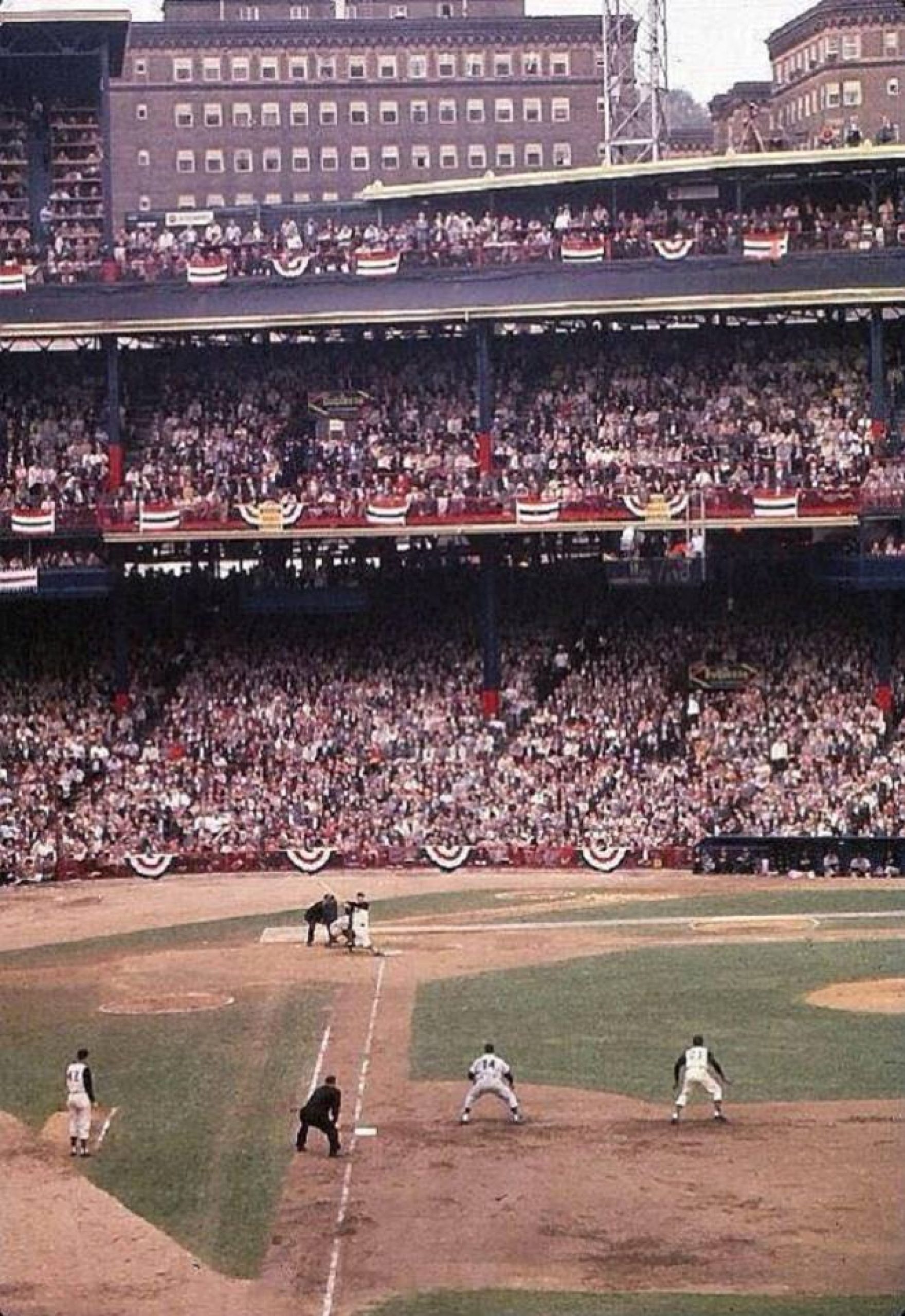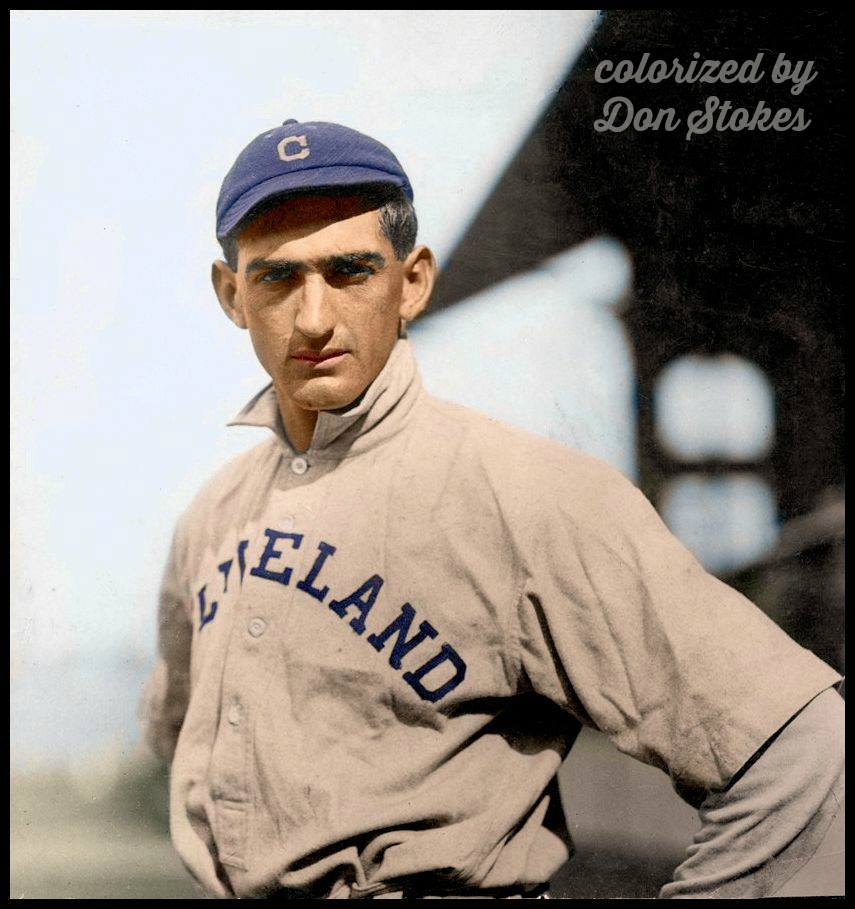Baseball History Comes Alive Now Ranked #2 by Feedspot Among All Internet Baseball History Websites and Blogs!
Guest Submissions from Our Readers Always Welcome!
Scroll Down to Read Today’s Essay
Subscribe to Baseball History Comes Alive for automatic updates. As a Free Bonus, you’ll get instant access to my Special Report: Gary’s Handy Dandy World Series Reference Guide!
Today I’ll continue with my “deep dive” into the Black Sox scandal with Part One of my three-part series on Joe Jackson’s involvement. Parts Two and Three will follow on the next two Wednesdays. This essay first appeared in my book, 1919 Black Sox Scandal: Time to Take Another Look. The essay’s a bit lengthy, but if you’re interested in Joe Jackson and the scandal, I hope you’ll take the time to read it. –GL
Another Look At The 1919 Black Sox Scandal:
Shoeless Joe Jackson, Part One – Did Joe Confess To The Grand Jury?
“The Supreme Being – not Judge Landis – will be my judge. The Good Lord knows I’m innocent of any wrongdoing.” – Joe Jackson
There’s probably no topic that’s more emotionally charged when discussing the 1919 World Series than Joe Jackson’s guilt or innocence. It’s still hotly debated almost one hundred years later. It’s not my intent to settle the issue today, but I’ll just try to present the known facts as objectively as I can, and you can make up your own mind.
The featured photo below is a beautiful colorization of Shoeless Joe Jackson from early in his career with the Cleveland Naps done by our resident baseball artist, Don Stokes.
Again, as I’ve said in each of the posts in this series, this is not in any way to excuse the “Eight Men Out.” They got what they deserved and they knew it. My only purpose has been to demonstrate my feeling that there’s a lot more to the story than the conventional wisdom has led us to believe. There were certainly different levels of guilt. I’m hoping to uncover the truth in the details of this sordid story.
Today, in Part One, I’ll address the question: Did Joe Jackson “confess” to the grand jury? As you’ll soon see, the answer, as with everything associated with the Black Sox scandal, is not cut-and-dry. In future articles, I’ll be taking an in-depth look at his play in the field, the $5,000 he received, and the 1924 Milwaukee trial in which he sued Charles Comiskey for back pay.
So did Shoeless Joe confess to his involvement in the Black Sox scandal or not? Didn’t he admit his guilt to the grand jury?
The short answer is “yes,” but read on…
EDDIE CICOTTE BREAKS OPEN THE SCANDAL
The floodgates to the scandal broke with Eddie Cicotte’s tearful confession to the grand jury on September 28, 1920, a statement, it should be noted, he later recanted. At the time, there were still three games still left in the 1920 season and the White Sox were only a half-game out of first place.
Next came Joe Jackson. You can easily make the case that the barely-literate Jackson, visibly under the influence of alcohol, was coached into making a statement to the grand jury by Charles Comiskey’s lawyer, Alfred Austrian. It was a statement that was very detrimental to himself while beneficial to Comiskey. Along with the acceptance of dirty money, nothing has been more damaging to his reputation than this supposed confession. It overrides his outstanding performance on the field, where he hit .375, hit the only home run of the series, and played errorless ball.
You can also make the case that Jackson knew what he was doing when he testified, admitted being aware of the plot, said he “let up some,” and took $5,000 of money provided by gamblers. He hoped that by “confessing” he’d avoid indictment and further legal problems.
So which was it?
JOE JACKSON’S CONFESSION
There’s no debating that Joe made a statement to the grand jury on September 28, 1920, that came to be characterized in the media the next day as a confession. Joe met with Austrian after he learned he had been implicated by Cicotte. He was coerced by Austrian into signing away his immunity, something he didn’t realize he was doing; and he acted without the benefit of legal counsel. He was also coached by Austrian as to what to say. He then went voluntarily to the grand jury with the intent, he thought, of clearing his name.
To put it mildly, Joe was “out of his league” when it came to legal matters and was vulnerable to coercion. He trusted Alfred Austrian. According to Gene Carney in Burying the Black Sox:
“Afraid of being indicted, Jackson found reassurance and safety in Austrian’s advice. It appears that Jackson was told to give the grand jury what they wanted, something that could be used to punish the gamblers.”
So with that in mind, he followed Austrian’s advice and was persuaded to talk. In his statement, he admitted agreeing to a fix with gamblers and to accepting cash but told the grand jury he did nothing to earn it, and played all games to win. Carney further writes:
“Austrian may have advised him, in the words of Eliot Asinof, ‘To deny your involvement will prejudice the grand jury. Do you understand that?’ Jackson wanted to stay out of trouble. So he testified. He said he let up some. And then he said he played every game to win. In the newspapers the next day, no one reported the latter statement. Whatever Jackson actually said, it went down as a ‘confession’.”
THE NEWSPAPERS REPORT JOE “CONFESSED”
From here it gets even more complicated. The next day, newspapers reported that he “confessed” on the heels of Cicotte. They also said he made numerous incriminating statements, about how he “struck out in the clutch;” “just poked at the ball with men in scoring position;” and “let up in the field.”
But these alleged statements appear nowhere in his grand jury testimony, and no one ever remembers him saying anything like this! Did reporters just make all this up? It’s very possible since we know the “Say it ain’t so, Joe…” episode is almost certainly a fabrication. In addition, the statements he did make that do appear in his grand jury testimony, about “playing every game to win, at bat and in the field,” were reprinted nowhere.
CAN THE 1920’S SPORTSWRITERS BE TRUSTED?
Read this interesting quote from White Sox historian, Richard Lindberg:
“…Sportswriters [in those days] were topnotch storytellers but poor researchers, who recited anecdotes and yarns they heard in the press box as the gospel truth, and as a result myths and legends became facts in print that future baseball historians had to try to prove but very often could not.”
Sounds like that could be the case here…
WHAT JOE DID SAY TO THE GRAND JURY?
Joe admitted taking $5,000, given to him by Lefty Williams. He also denied doing anything to earn it. Here’s a portion of what he said, the part of his testimony that went unreported:
Q. Did you make any intentional errors yourself that day (Game Four)?
A. No, sir, not during the whole series.
Q. Did you bat to win?
A. Yes.
Q. And run the bases to win?
A. Yes, sir.
Q. And fielded the balls in the outfield to win?
A. I did.
Gene Carney asks: “Why did this grand jury testimony go down as a simple confession, instead of the self-contradictory account of a confused witness?”
COMISKEY’S WOODLAND BARDS
Probably the best explanation lies in the fact that many of the local and national press corps were cronies and drinking buddies of Charles Comiskey – members of the famous Woodland Bards, and they had a vested interest in protecting the baseball establishment, most especially Charles Comiskey. The press kept the focus on the players, not those who owned and ran baseball. So Jackson’s testimony served nicely as a “confession.”
Here’s Gene Carney’s summary:
“Testifying before the Cook County grand jury, Jackson told two stories, and they contradicted each other, and no one asked him to choose one or the other. So both are on the record, giving fuel to those who believe he was in on the fix and to those who believe he was not.”
But later, in the 1924 court proceedings when Jackson sued Comiskey for back pay:
“A sober Jackson was crystal clear about his performance. And he went to his grave without ever changing his story again.”
Are you as confused as I am? Feel free to draw your own conclusions….
Gary Livacari
Photo Credits: Featured photo beautifully colorized by our resident baseball artist, Don Stokes; All others from Google search
Information Source: “Burying the Black Sox,” by Gene Carney
Subscribe to our website, “Baseball History Comes Alive!” with over 1200 fully categorized baseball essays and photo galleries, now closing in on the one million hits mark with 852K hits and over 600 subscribers: www.baseballhistorycomesalive.com


Great recounting of the Shoeless Joe saga, Gary. IMHO, Joe was a victim of his own under-educated, naive lack of understanding of just what he had gotten himself involved in….both during the actual games played in the ’19 WSeries, and in the eventual aftermath. I think he was essentially an easy scapegoat for those who wanted to ensure that the scandal wouldn’t jeopardize future profits for themselves after the dust had settled. So unfortunate that he was taken advantage of like that. It cost him his rightful place in Cooperstown. {btw….sounds like Comiskey’s attorney was a real scoundrel}.
There’s always been media abuse or complacent; seems much hasn’t changed
Love your work